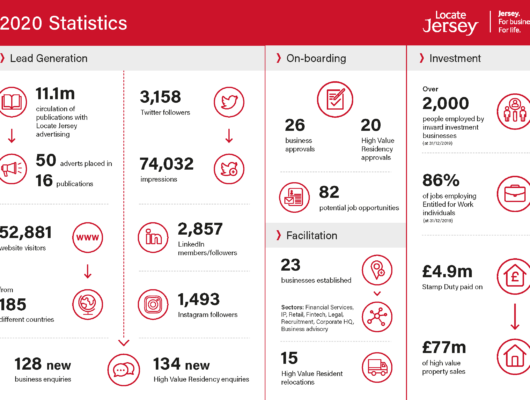Jersey and the OECD’s New Global Tax Framework
On July 1st it was announced that Jersey is one of 130 jurisdictions of 139 that has agreed and signed up to the OECD’s Inclusive Framework, a new global tax framework. The framework is designed to create and agree new rules on the taxation of large multi-national companies. Whilst no final agreement on this has been agreed, this decision has been the culmination of 2 years work, with more [work] to come.
Jersey plays a key and active role with the OECD on multiple subjects around tax reform and financial crime, you can find more information on Jerseys work with the OECD and other international regulatory bodies on our page Regulation & Legislation.

“The Government of Jersey has participated fully at every stage of these discussions, to represent the interests of the Island, our economy and our international finance centre.”
– Senator Gorst Jersey’s Minister for External Relations and Financial Services
The new framework is targeted specifically to the largest worldwide multinational companies and proposes 2 pillars in the framework.
Pillar 1; creates new profit allocation rules for the world’s largest 100 global multi-national companies (this excludes regulated financial services). These companies may have to reallocate some of their profits to the jurisdictions of their markets and customers.
Pillar 2; introduces a new taxation framework for businesses which fall under this category. Companies would have to pay a Minimum Effective Rate of Taxation (MER) on their global profits. This would be calculated on a country by country basis. There is currently no agreed MER value as negotiations continue. (NB; Funds are excluded.)
Jersey’s tax policy combines the application of strong rules on transparency and economic substance, and tax neutrality. This regulation has been approved by the OECD and EU, you can find more information on Regulation & Legislation compliance by clicking the link.
Following recent independent and external assessments Jersey is confident that it is and will continue to meet the requirements of international policymakers on the implementation of global tax standards and that this new agreement will not negatively affect Islanders, local businesses and that there will be no impact on Jersey’s 0%/10% corporate tax regime.
“Jersey’s corporate tax system has been carefully designed to meet the Island’s ongoing fiscal needs and to align with international standards. This means that Jersey’s corporate tax system is designed to support the requirements of a geographically small economy that is open and attractive to global investment. Jersey is well placed to continue to adapt to international tax standards, and we will continue to engage in a proactive way with the OECD, EU and global bodies to combat aggressive tax avoidance and profit shifting.
Our focus continues to be on adding value to the global economy by offering a stable, certain and attractive environment for supporting the growth of cross-border investment in a well-regulated and transparent manner.”
– Senator Ian Gorst, Minister of External Relations and Financial Services
More News
Strategically positioned between the UK and Europe, Jersey opens up a world of connections.
- Enviable quality of life and work-life balance
- Highly regarded and well-regulated international jurisdiction
- Safe, secure community lifestyle
- Low personal and business taxes











